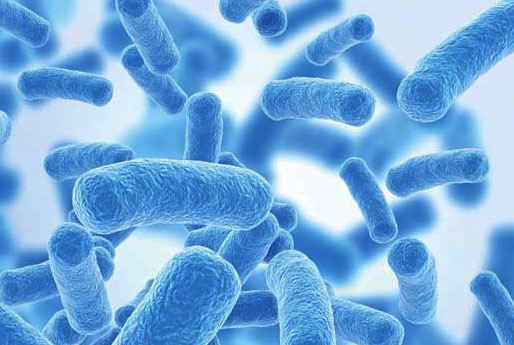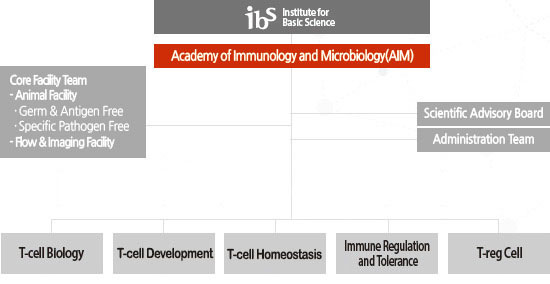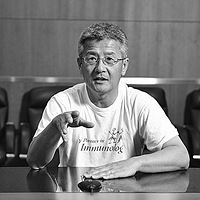주메뉴
- About IBS 연구원소개
-
Research Centers
연구단소개
- Research Outcomes
- Mathematics
- Physics
- Center for Underground Physics
- Center for Theoretical Physics of the Universe (Particle Theory and Cosmology Group)
- Center for Theoretical Physics of the Universe (Cosmology, Gravity and Astroparticle Physics Group)
- Dark Matter Axion Group
- Center for Artificial Low Dimensional Electronic Systems
- Center for Theoretical Physics of Complex Systems
- Center for Quantum Nanoscience
- Center for Exotic Nuclear Studies
- Center for Van der Waals Quantum Solids
- Center for Relativistic Laser Science
- Chemistry
- Life Sciences
- Earth Science
- Interdisciplinary
- Center for Neuroscience Imaging Research (Neuro Technology Group)
- Center for Neuroscience Imaging Research (Cognitive and Computational Neuroscience Group)
- Center for Algorithmic and Robotized Synthesis
- Center for Nanomedicine
- Center for Biomolecular and Cellular Structure
- Center for 2D Quantum Heterostructures
- Institutes
- Korea Virus Research Institute
- News Center 뉴스 센터
- Career 인재초빙
- Living in Korea IBS School-UST
- IBS School 윤리경영


주메뉴
- About IBS
-
Research Centers
- Research Outcomes
- Mathematics
- Physics
- Center for Underground Physics
- Center for Theoretical Physics of the Universe (Particle Theory and Cosmology Group)
- Center for Theoretical Physics of the Universe (Cosmology, Gravity and Astroparticle Physics Group)
- Dark Matter Axion Group
- Center for Artificial Low Dimensional Electronic Systems
- Center for Theoretical Physics of Complex Systems
- Center for Quantum Nanoscience
- Center for Exotic Nuclear Studies
- Center for Van der Waals Quantum Solids
- Center for Relativistic Laser Science
- Chemistry
- Life Sciences
- Earth Science
- Interdisciplinary
- Center for Neuroscience Imaging Research (Neuro Technology Group)
- Center for Neuroscience Imaging Research (Cognitive and Computational Neuroscience Group)
- Center for Algorithmic and Robotized Synthesis
- Center for Nanomedicine
- Center for Biomolecular and Cellular Structure
- Center for 2D Quantum Heterostructures
- Institutes
- Korea Virus Research Institute
- News Center
- Career
- Living in Korea
- IBS School
Research Centers
- Research Outcomes
- Mathematics
- Physics
- Center for Underground Physics
- Center for Theoretical Physics of the Universe (Particle Theory and Cosmology Group)
- Center for Theoretical Physics of the Universe (Cosmology, Gravity and Astroparticle Physics Group)
- Dark Matter Axion Group
- Center for Artificial Low Dimensional Electronic Systems
- Center for Theoretical Physics of Complex Systems
- Center for Quantum Nanoscience
- Center for Exotic Nuclear Studies
- Center for Van der Waals Quantum Solids
- Center for Relativistic Laser Science
- Chemistry
- Life Sciences
- Earth Science
- Interdisciplinary
- Center for Neuroscience Imaging Research (Neuro Technology Group)
- Center for Neuroscience Imaging Research (Cognitive and Computational Neuroscience Group)
- Center for Algorithmic and Robotized Synthesis
- Center for Nanomedicine
- Center for Biomolecular and Cellular Structure
- Center for 2D Quantum Heterostructures
- Institutes
- Korea Virus Research Institute
Conquering immune disorders
Tel. +82-54-279-8628
Tel. +82-54-279-0639
IBS Academy of Immunology and Microbiology
Room 286, POSTECH Biotech Center, POSTECH,
77, Cheongam-ro, Nam-gu, Pohang-si, Gyeongsangbuk-do
Acting Director
Division of research services
Head of Division
Chae Suhn Kee
Introduction

Understanding immune homeostatic mechanisms between commensal microbes and host immune system
- - Defining new mechanisms on how commensal microbes and food antigens contribute to the development of host immune system and maintenance of immune homeostasis
- - Defining new mechanisms on how the immune system establishes tolerance against self antigens and harmless foreign antigens
- - Developing immunotherapy for chronic inflammatory diseases, allergy and cancer
Main research activities
The immune system is essential to protect the host from invasion by pathogenic microbes and outgrowth of cancerous host cells. It is both powerful and versatile, capable of mobilizing a customized potent response to the vast array of pathogens and tumors. Because of its strength, the activated immune response is tightly regulated and is, upon elimination of the invaders, rapidly extinguished to prevent collateral tissue damage. The immune system thereafter “remembers” the invaders, and is capable of mounting a stronger and quicker response to subsequent invasions by the same pathogen or cancer.
Effective immunity requires a complex network of interactions between multiple types of cells. The primary lymphoid tissues generate immune cells, whose activation is initiated in the secondary lymphoid tissues. Immune cells are also distributed throughout the non-lymphoid tissues and are particularly prominent in the mucosal tissues that are exposed to the environment. Here, these immune cells perform a highly specialized function by providing protection from environmental pathogens, while maintaining operational tolerance to benign antigens and to the massive numbers of commensal microbes that co-exist peacefully with the host.
While many key mechanisms that regulate the immune system have been deciphered, many more have yet to be discovered. The goal of Academy of Immunology and Microbiology (AIM) is to discover several of these unknown fundamental mechanisms. Particular focus will be placed on elucidating the mechanisms by which various populations of lymphocytes develop and function, how these cells are activated and regulated in order to protect the host without causing collateral tissue damage, and how these cells co-exist peacefully with the commensal microbes while conferring protective immunity against pathogenic microbes. These discoveries should reveal novel approaches to enhance immunity against pathogens and cancer and to prevent or ameliorate chronic immune inflammatory diseases, such as autoimmunity, allergies, atherosclerosis and metabolic diseases.
Organization

Main research results
- Dietary Antigens Limit Mucosal Immunity by Inducing Regulatory T Cells in the Small Intestine
(Science, 2016) - CD45-mediated control of TCR tuning in naive and memory CD8(+) T cells
(Nature Communications, 2016) - Extracellular Vesicle-Derived Protein from Bifidobacterium Longum Alleviates Food Allergy through Mast Cell Suppression
(J Allergy Clin Immunol, 2016) - Microbiota-Independent Ameliorative Effects of Antibiotics on Spontaneous Th2-Associated Pathology of the Small Intestine
(Plos ONE, 2015) - 6-Methoxyflavone Inhibits NFAT Translocation into the Nucleus and Suppresses T Cell Activation
(J Immunol, 2014)
Personnel
| Total | 48 |
|---|---|
| Gender | 25(Male), 23(Female) |
| Korean/ International | 39(Korean), 9(International) |
Degree
Position
As of March. 2017
Director Charles D. SURH of IBS Academy of Immunology and Microbiology (1961~2017)

Director Charles D. SURH received his B.S. in chemistry from the University of California, San Diego and earned his Ph.D. in immunology from the University of California, Davis. He completed a postdoctoral program and served as senior researcher, assistant professor, and full professor at The Scripps Research Institute (TSRI). After being selected as the director of AIM in 2012, he returned to Korea and was also appointed as a professor of POSTECH.
Director SURH is a world leading immunologist who presented over 120 papers from 1984. When he was at TSRI, he published papers demonstrating the entire process from birth to death of T cells in world-renowned journals, such as Nature and Science. In particular, he discovered for the first time that only 1% of T cells developed in the thymus fight external invaders. With such outstanding achievements, he was honored with the Ho-Am Prize in Medicine in 2007 and was selected as 100 Distinguished minds who will shine Korea in 2010.
After returning to Korea, he focused on research to identify the interaction mechanism between the immune system and symbiotic microorganisms. His studies demonstrating how food induces immunologic unresponsiveness and competition for survival among immune cells maintains immune balance were published in Science (February 2017) and Immunity (July 2017), respectively. He was diagnosed with cancer in early 2015 but his illness could not stop him from conducting research. He continued his research while receiving treatment for cancer.
Education
- B.A., Chemistry, University of California, San Diego, California, 1983
- Ph.D., Immunology, University of California, Davis, California, 1989
- 1993 ~ 1998 Assistant Professor, Department of Immunology, Scripps Research Institute, California, U.S.
- 1998 ~ 2005 Associate Professor, Department of Immunology, Scripps Research Institute, California, U.S.
- 2005 ~ 2008 Associate Professor with Tenure, Department of Immunology, Scripps Research Institute, California, U.S.
- 2008 ~ 2012 Professor, Department of Immunology, Scripps Research Institute, California, U.S.
- 2012 ~ 2017 Adjunct Professor, Department of Immunology, Scripps Research Institute, California, U.S.
- 2012 ~ 2017 Adjunct Professor, Division of Developmental Immunology, La Jolla Institute for Allergy and Immunology, California, U.S.
- 2012 ~ 2017 Professor, Division of Interactive Biosciences & Biotechnology, Pohang University of Science and Technology, Pohang, Korea
- 2012 ~ 2017 Director, Academy of Immunology and Microbiology, Institute for Basic Science, Pohang, Korea
- 1993 ~ 1996 Special Fellow, Leukemia Society of America
- 1999 ~ 2004 Scholar, Leukemia and Lymphoma Society
- 2007 Ho-Am Prize in Medicine
- 2010 100 Distinguished minds who will shine Korea in 2020, selected by Dong-A Ilbo












